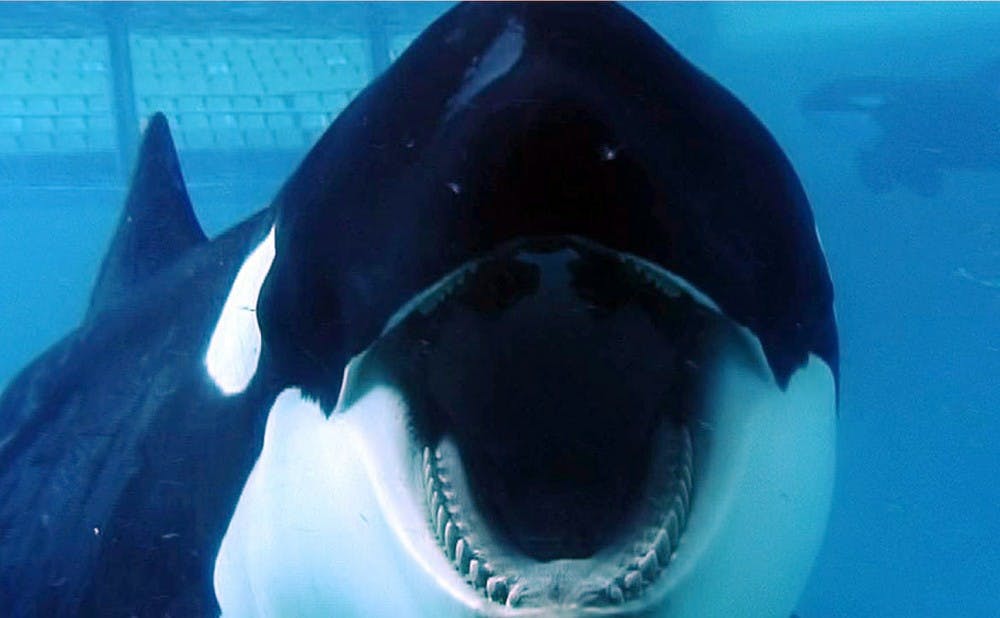If you see "Blackfish" this week, by the time the Vineyard Vines Cornhole Tournament rolls around this weekend, you won’t look at the whale the same way again.
This astounding documentary, which premiered this past January at Sundance and is now playing at the Carolina Theater, shows the true strength of killer whales through interviews and graphic footage. Several former whale poachers tell of how they had captured these creatures for a life of captivity in amusement parks: they would use a plane to find the hiding females and young, then use their boats to encircle the creatures en masse and pick out the youngest, which they would then sell to a park. These animals are traumatized, suffering emotional and physical abuse that prompts the development of violent behavior. In the film, an interviewed CNN anchor aptly questions, "If you were in a bathtub for 25 years, don't you think you'd get a little psychotic?" Perhaps the most infamous case of this psychological impact is of Tilikum, a whale that was captured in 1983 at age two. The 8,000-pound orca has led to the death of three trainers.
Indeed, Tilikum is the focal point of the documentary. Director Gabriela Cowperthwaithe masterfully tells the story of Tillikum, particularly events surrounding the most recent incident when he famously killed his trainer, Dawn Brancheau, three years ago at SeaWorld Orlando. As shown in the film, Tilikum dragged Brancheau into his pool and aggressively pursued her. She sustained multiple major injuries to her body and died from drowning.
The documentary is powerful as Cowperthwaite expertly weaves poignant interviews with former whale poachers and trainers with footage of orcas and the dangers they pose. She does not hold back in the documentation of the conditions of these parks and the tragic injuries and deaths of trainers. In one scene in particular, we see a haunting clip of a trainer crushed between two orca whales, lucky to escape with his life and held together by his wetsuit. She brilliantly depicts the beauty inherent to the sheer strength of these creatures, but also the danger of that strength.
It is a beautiful but difficult documentary to watch. Fortunately, however, it is heartwarming to know that the film has left a significant beneficial impact on animal rights nationwide. According to numbers, SeaWorld’s ticket sales have dropped since, and the documentary even influenced Pixar to change the ending of its "Finding Nemo" sequel, "Finding Dory."
I was struck by the profound power and beauty of orcas. They have patriarchal family structures very similar to ours, and their lifespans are close to those of humans as well. Orcas should be left free in their natural habitat, not coerced into a life of trauma, isolation and repression in a small, dark tank.
"Blackfish" reveals what is undoubtedly true: the industry needs to change.
"Blackfish" opened at the Carolina Theater last Friday. Showings are at 7:30 and 9 p.m.
Get The Chronicle straight to your inbox
Signup for our weekly newsletter. Cancel at any time.

